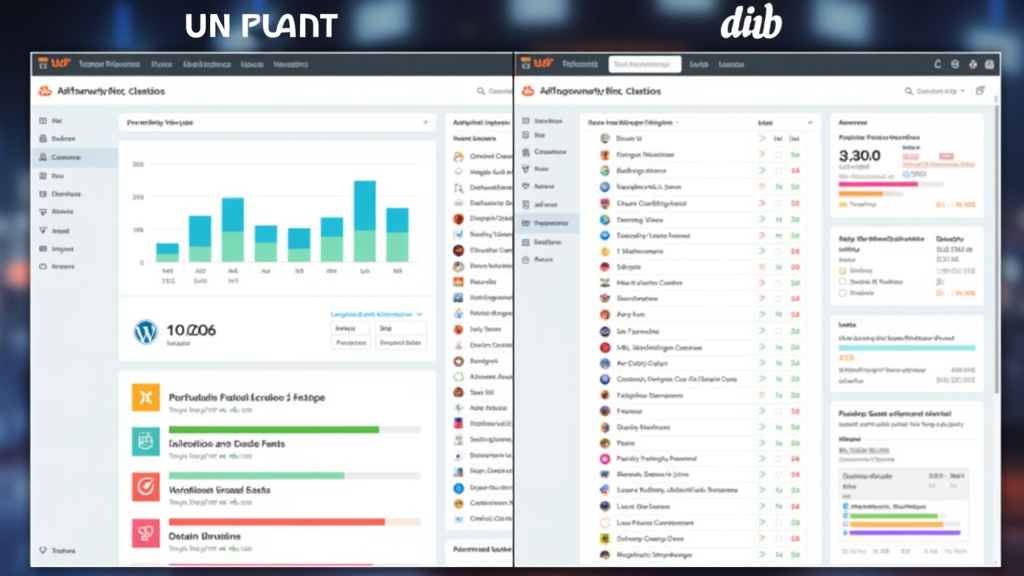Blogging has long been recognized as a way to generate income, but there’s so much more to it than just dollars and cents. The non-financial benefits of blogging have surprised me after spending years writing posts across different niches. I’ve stumbled upon benefits that go way beyond money. If you’re considering starting a blog, it’s worth looking at what else you stand to gain. I’ll walk you through the non-financial perks I appreciate the most.

Contents
- 1 Personal Growth Through Blogging
- 2 Building Community and Connections
- 3 Professional Development and Credibility
- 4 Creative Expression and Storytelling
- 5 Skill Building: More Than Just Writing
- 6 Boosting Well-Being and Mindset
- 7 Common Challenges and How to Overcome Them
- 8 Frequently Asked Questions
- 9 Final Thoughts
- 10 Related Articles
Personal Growth Through Blogging
One of the biggest things I’ve noticed since I started blogging is how much I’ve grown. Writing down my thoughts and ideas forces me to organise what’s swirling in my head. Whether I’m tackling topics I know well or researching something entirely new, every blog post becomes a learning experience.
Stepping outside your comfort zone to publish your words online takes practice and courage. Hitting “publish” always gives me a little jolt, but with each post, I gain more confidence in my writing and my voice. Over time, it helps with:
- Improved Communication: Blogging gets you used to breaking down ideas so others can understand them. It’s a skill that comes in handy at work, in conversations, and even on social media.
- Clearer Thinking: Explaining things to others often helps clarify my own beliefs and opinions.
- Consistency and Discipline: Maintaining a regular post schedule requires organization and a bit of grit, making me better at following through with other commitments too.
Personal growth from blogging doesn’t always happen overnight, but with consistent effort, you’ll notice your writing and confidence steadily improve. Whether you write for yourself or for an audience, the ongoing process of editing and reflecting helps you learn about yourself in unexpected ways, giving a boost to your sense of accomplishment and self-esteem.
Building Community and Connections
Putting your thoughts and stories out there usually means people want to read and respond. Over time, a blog can attract readers who share similar interests or experiences, creating a sense of community. I’ve met people I never would have encountered otherwise; some have ended up as friends, others as collaborators, and a few even as mentors.
There are a few ways blogging helps you connect:
- Networking Opportunities: Commenting on other blogs and responding to comments on your own often opens up organic conversations that can lead to lasting relationships.
- Collaboration: Bloggers often guest post or team up on joint projects, broadening each other’s reach and learning from each other.
- Support System: Sharing struggles or victories creates a network of people who can offer advice, feedback, or encouragement when you need it.
Your blogging circle often grows naturally as you reach out to other writers and readers. You’ll likely stumble upon forums, social media groups, or local meetups dedicated to your niche, giving you even more chances to connect. This expanded network can fast-track your access to opportunities and new learning experiences, and it often leads to friendships you wouldn’t have expected just from writing online. Never underestimate the loyalty of a handful of loyal readers—they can make your blogging adventure far more rewarding.
Professional Development and Credibility
While blogging isn’t an official credential, it can boost your professional reputation. A well-maintained blog acts like an online portfolio for people wanting to break into a field or show off specific knowledge. I’ve found that writing about challenges and trends within my niche helps others and makes my experience visible to potential partners or employers.
Some perks on the professional side include:
- Building Authority: Consistently sharing knowledge shows expertise and commitment.
- Continuous Learning: Staying current and digging deep into research for posts keeps me sharp and up-to-date with what’s happening in my industry.
- Resume Booster: Employers sometimes check out personal blogs. Demonstrating initiative, writing skills, and expertise can help you stand out, especially in creative or communications-driven roles.
Your professional reach often grows hand-in-hand with your blog’s reputation. When industry peers or employers see a steady stream of thoughtful, well-researched articles, you’re more likely to be remembered, contacted, or even invited to projects and events that might not arise otherwise. Writing posts about real-world challenges or industry news also shows your adaptability and willingness to learn, giving you an edge in competitive fields.
Creative Expression and Storytelling
One of my favourite parts about having a blog is the creative freedom. Unlike the rules and guidelines I might have to follow in work emails or reports, my blog is a place where I set the tone. I get to experiment with voice, layout, and visuals. Some posts are informative guides, others are personal stories, and sometimes I just showcase photos or art.
Blogging lets you:
- Experiment with Styles: You can write short how-to tips one week and a get into opinion piece the next.
- Document Your Adventure: Seeing old posts in your archive is like flipping through a digital scrapbook of your growth, changing thoughts, and experiences.
- Find Your Voice: Over time, the more you write, the more you stumble upon who you are as a writer and creator.
The blog format is flexible—the freedom to post poetry, travel logs, reviews, or visual art all in one place is hard to match elsewhere. This creative playground isn’t just fun; it helps you spot patterns in your thinking and lets you experiment with presentation and storytelling until you find what resonates most with you and your audience.
Skill Building: More Than Just Writing

Blogging isn’t simply about stringing words together. Over time, I picked up many soft and technical skills that pay off in other areas of life.
- Research and Critical Thinking: Good blog posts answer real questions, which takes research, blending info, and making it accessible. These skills are useful in school, work, or any project that requires thorough analysis.
- Tech Savvy: Even basic blogging will likely introduce you to website platforms, editing software, SEO basics, and maybe some light design or coding.
- Project Management: Planning an editorial calendar or juggling a content schedule helps develop planning and time management skills.
- Marketing Know-How: Promoting posts, learning about social media, and experimenting with newsletters gives you practical experience in marketing.
In addition, you might become a better problem solver as you troubleshoot issues or switch up your strategies based on analytics and audience feedback. The variety found in running a blog means you’re always learning—sometimes in areas you never expected.
Boosting Well-Being and Mindset
Blogging has a bigger impact on my mental wellness than I expected. It offers an outlet for self-reflection and a healthy way to manage stress. Writing about hopes, setbacks, or little joys can be surprisingly therapeutic.
The benefits go beyond personal reflection:
- Satisfaction from Helping Others: It’s rewarding to know a post you wrote solved a problem or made someone’s day easier.
- Sense of Achievement: Each published post is a mini-win and proof that you followed through on a project.
- Increased Confidence: Sharing thoughts with the world; and seeing people respond positively; has a big impact on how I see myself and my ideas.
Sharing experiences, both good and bad, encourages a sense of community and reduces feelings of isolation. Writing also helps with personal goal setting—I often use my blog as an accountability tool, writing about intentions and checking back to report progress. This routine has provided clarity and motivation to work toward my bigger goals.
Common Challenges and How to Overcome Them
Blogging has lots of rewards, but it isn’t always smooth sailing. If you’re new, here are a few challenges I’ve faced and how I deal with them:
- Writer’s Block: There are days when ideas dry up. Keeping an ongoing list of potential post topics and reading other blogs can help get the creativity flowing again.
- Negative Feedback: Not every comment will be kind. I focus on constructive criticism and try not to dwell on the rest.
- Time Management: Juggling a blog with work or school isn’t always easy. Setting realistic posting goals and batching tasks makes blogging feel less overwhelming.
- Tech Hurdles: Maintenance and troubleshooting can be intimidating. I’ve found many helpful forums and tutorials online (WordPress and Medium have great community support, for example).
Writer’s Block
The blank page can feel intimidating some days. I try to avoid it by noting stray thoughts and topic ideas. If I’m stuck, I might tackle a lighter topic or revisit something I wrote months ago to expand or update it. Sometimes, reading comments from readers or browsing trending hashtags gives me a nudge in the right direction.
Negative Feedback
Public writing opens the door to criticism. I do my best to separate helpful suggestions from mean-spirited comments. Constructive feedback can help improve future work, but random negativity is best ignored or deleted if it doesn’t add value.
Time Management
Life’s busy. I usually set aside specific times in my week, maybe Sundays or lunch breaks, to write or edit. Planning posts in advance also helps keep the momentum going without sudden bursts of panic before a deadline.
Tech Hurdles
When plugins go haywire or a new layout won’t load properly, it can feel like a huge headache. I usually search support forums or Google the issue. There’s almost always a solution; the basics get much easier after a while.
Blogging offers a buffet of benefits besides earning money. The deal includes personal growth, fresh friendships, professional credibility, new skills, and a sense of purpose. If you’re considering trying it, you’ll find lots to gain and maybe even some surprises.
Frequently Asked Questions
New bloggers often have questions about what to expect. Here are a few I get a lot:
Question: Can blogging help with public speaking or interviews?
Answer: Writing regularly trains you to explain ideas clearly and boosts confidence. These skills translate well to interviews, presentations, and other situations where clear communication matters.
Question: How much time does blogging usually take?
Answer: It depends on your posting schedule and style. Some people spend an hour a week, while others dedicate a few hours per post. Planning helps keep things manageable without eating into the rest of your life.
Question: Do I need technical skills to start a blog?
Answer: Not really. Platforms like WordPress and Blogger make it easy to get started without coding. You can always learn extra tech skills to customise your site.
Final Thoughts

Monetary rewards might get all the attention, but I’ve found the real value of blogging is how it shapes your mindset, expands your skills, and connects you with interesting people. A single blog can open all kinds of doors; ones you might not expect when you start. It’s worth giving it a shot to see where your blogging path leads.






